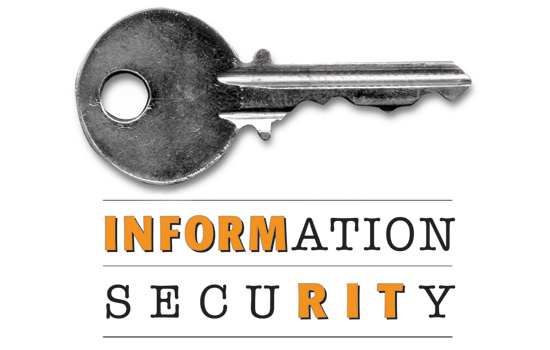October 21, 2014
by Marie Lang
Tune up digital defense skills
RIT Information Security Office marks Cyber Security Awareness Month with tips on how to stay safe online
October is National Cyber Security Awareness Month, a collaborative effort created between government and industry to guarantee everyone has the resources needed to stay safe online.
This year, RIT is again a proud champion of National Cyber Security Awareness Month. The RIT Information Security Office encourages you to review your online safety practices, take precautions and spread the word. Stay connected with the Information Security Office on Twitter (@RIT_InfoSec), Facebook and Google+.
Practice digital self-defense with these tips. For more tips, go to the Information Security Office’s best practices page.
Keep a clean machine
- Keep security software current: Having the latest security software, Web browser and operating system are the best defenses against viruses, malware and other online threats.
- Automate software updates: Many software programs will automatically connect and update to defend against known risks. Turn on automatic updates if that’s an option available.
- Protect all devices that connect to the Internet: Smart phones, gaming systems and other Web‐enabled devices also need protection from viruses and malware.
- Plug and scan: USB sticks and other external devices can be infected by viruses and malware. Use your security software to scan them.
Protect your personal information
- Secure your accounts: Ask for protection beyond passwords. Many account providers now offer two-factor authentication, an additional way for you to verify who you are before you conduct business on that site.
- Use a passphrase: Create a passphrase by choosing a short phrase, changing the capitalization of some of the letters, replacing some with numerical and symbolic substitutions and purposefully misspelling or abbreviating some words. For more information on how to create a secure password, go to the Information Security Office’s creating strong passwords page.
- Unique account, unique password: Separate passwords for every account helps to thwart cybercriminals.
- Write it down and keep it safe: Everyone can forget a password. Use a password safe such as LastPass to store your passwords.
- Own your online presence: When available, set the privacy and security settings on social media to your comfort level for information sharing. It’s OK to limit how and with whom you share information.
Connect with care
- When in doubt, throw it out: Links in email, tweets, posts and online advertising are often the way cybercriminals compromise your computer. If it looks suspicious, even if you know the source, it’s best to delete or if appropriate, mark as junk email.
- Get savvy about Wi‐Fi hotspots: Limit the type of business you conduct and adjust the security settings on your device to limit who can access your machine.
- Protect your money: When banking and shopping, check to be sure the sites are security enabled. Look for Web addresses with “https://” or “shttp://”, which means the site takes extra measures to help secure your information. “Http://” is not secure.
Be Web wise
- Stay current. Keep pace with new ways to stay safe online. Check trusted websites for the latest information and share with friends, family and colleagues.
- Think before you act: Be wary of communications that urge you to act immediately, offers something that sounds too good to be true, or asks for personal information.
- Back it up: Protect your valuable work, music, photos and other digital information by making a digital copy and storing it safely.
Be a good online citizen
- Safer for me means more secure for all: What you do online has the potential to affect everyone — at home, at work and around the world. Practicing good online habits benefits the global digital community.
- Help the authorities fight cybercrime: Report stolen finances or identities and other cybercrime to the Internet Crime Complaint Center website.














